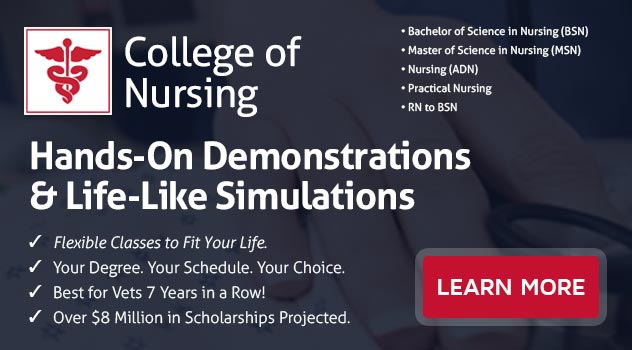Beginning Nursing Programs: What is Available for me to Study?
Nurses are an integral part of our current healthcare system. For those seeking a future in nursing, why is an associate degree program a good place to start? Why is education so important on this path? And how does hands-on instruction help future nurses prepare for the realities of a full-time future in nursing?
The Benefits of an Associate Degree in Nursing
Starting your nursing journey with an associate degree program offers many benefits over other educational paths.
- Associate degree programs are designed to give students the basic knowledge and competencies nurses need. With this focus in mind, classes move more quickly, enabling students to finish their studies and start working in a short time.
- Good nursing relies on experience. An associate degree program teaches fundamental procedures and techniques that create a foundation of good practices. Daily work experience builds on this foundation, so it’s important that students have the best instruction in fundamentals.
- When you’re ready to challenge yourself, use the credits earned from your associate degree program to help you achieve a bachelor’s degree. The higher credentials could open up new opportunities and give you more power over the positions you choose.
An associate degree in nursing gets you working faster, builds a strong foundation of knowledge and skills, and can lead to higher credentials and more opportunities.
The Importance of Education in Nursing
Your level of education has a large impact on the vitality of your life as a nurse. There are three common educational pathways for aspiring nurses:
- Nursing diploma programs usually only last a few weeks. These fast-paced programs teach students how to maintain sanitary conditions, physically assist patients with care and movement, and other common care procedures. Graduates are qualified to work as Licensed Practical Nurses (LPNs) in hospitals and long-term care facilities, among other medical facilities.
- An associate degree in nursing is the first step in qualifying students to work as a registered nurse. These professionals are more involved in direct patient care, though still taking their orders from a head nurse or doctor. In order to work as a registered nurse, applicants must successfully complete the National Council Licensure Examination (NCLEX-RN).
- Bachelor degree programs include additional instruction in leadership, critical thinking, social sciences, and communication. The extra curriculum prepares graduates to take on more management-oriented roles in the medical field. Many nurses choose to start out with an associate degree and go back to earn their bachelor's after they have some experience in the field.
In nursing, more education gives you more options. However, an associate degree is a great way to start your nursing journey. You'll have more options than a diploma and have the opportunity to go back to school for a BSN when the time is right for you. Some RNs even go on to become nurse educators or nurse practitioners with an MSN.
The Role of Hands-On Instruction in Nursing Programs
Hands-on instruction is the most vital part of any training program. Live, guided exercises allow future nurses to practice the skills they’ll need to use every day. There are, however, other benefits to hands-on instruction in nursing programs.
- Guided instruction gives students a safe space to practice skills that could cause physical harm in a real-world situation. Blood draws, pressure readings, and administering medication are just a few of the things students can practice without danger of causing harm to patients.
- Peer review is an important component of hands-on instruction. Feedback from fellow students helps learners perfect their own skills with less pressure.
- Hands-on instruction appeals to those who are more action-oriented learners. It gives all students a chance to solidify knowledge they’ve learned from lectures and readings.
A successful training program uses a variety of methods to ensure students leave with all the knowledge they need to pursue their dreams.
Are you interested in beginning a life as a nurse? If you want to earn an Associate Degree of Nursing (ADN), consider ECPI University's year-round program. For more information about this exciting degree, connect with a friendly admissions representative today.
It could be the Best Decision You Ever Make!
DISCLAIMER – ECPI University makes no claim, warranty, or guarantee as to actual employability or earning potential to current, past or future students or graduates of any educational program we offer. The ECPI University website is published for informational purposes only. Every effort is made to ensure the accuracy of information contained on the ECPI.edu domain; however, no warranty of accuracy is made. No contractual rights, either expressed or implied, are created by its content.
For more information about ECPI University or any of our programs click here: http://www.ecpi.edu/ or http://ow.ly/Ca1ya.





